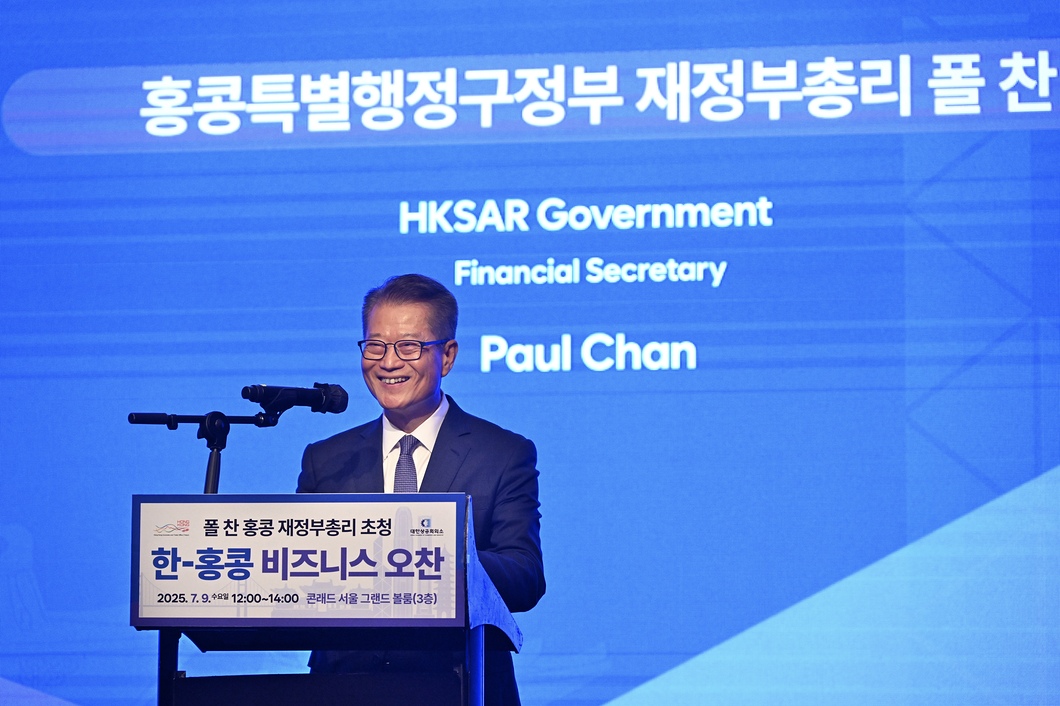
South Korean financial institutions traded over HK$1.5 trillion ($191 billion) on Hong Kong’s stock market in the first five months of this year — 2.8 times last year’s total — reflecting strong confidence in local investment opportunities, Paul Chan Mo-po, the city’s financial secretary, said in his Sunday blog.
Since last September, the strong performance of Hong Kong’s financial markets and vibrant IPO fundraising activities have attracted the attention of the South Korean financial sector, Chan said.
The Hong Kong stock market’s benchmark Hang Seng Index has risen by more than 30 percent since September and also topped the global IPO market in the first half of this year.
ALSO READ: South Korean investors buy most Hong Kong stocks in three years
The fact that China has continued to make breakthroughs in science and technology, while supporting technology companies to accelerate listing in the Hong Kong Special Administrative Region in recent years, has also aroused the attention of South Korean investors, including those from the fields of venture capital and private equity, Chan said.
In addition to Hong Kong’s traditional financial markets, South Korean investors have shown strong interest in local innovative financial products, Chan said, speaking following a trip to South Korea last week.
During the visit, he said one of the hot topics among the local financial community was a pair of leveraged and inverse products recently listed in Hong Kong that are linked to a South Korean technology company.
In May, CSOP Asset Management launched the world’s first leveraged and inverse products to track Samsung Electronics, in Hong Kong. This means that if South Korean investors want to buy and sell related derivative products, the only way is to trade them in Hong Kong, Chan explained. South Korea’s financial sector is studying how to apply related products and concepts to other suitable South Korean companies, he added.
The financial secretary said investors in South Korea are also interested in Hong Kong’s digital asset market and the Stablecoins Ordinance, which will take effect on Aug 1.
According to media reports, more than 40 firms, including internet companies, financial institutions, and payment service providers, are preparing to submit license applications under the new regulatory framework.
READ MORE: Chan: Hong Kong stands out as a safe harbor for global capital
Financial institutions and technology companies in South Korea still lack understanding of innovation and technology development, and investment opportunities, in the Guangdong-Hong Kong-Macao Greater Bay Area, said Chan, having spoken with company executives during his trip. However, they expressed great interest in Hong Kong’s role as a superconnector and agreed that the two regions have many opportunities to cooperate in a variety of areas, he added.
For example, Chan believes exchange-traded funds, which have become popular in Hong Kong in recent years, could enhance the connectivity and liquidity of the two markets, and broaden the investor base of financial products.
Meanwhile, mechanisms to promote interconnection of the Hong Kong and South Korean financial markets will attract more domestic and foreign funds to invest in companies listed in both places, and will also open up new asset allocation options for investors on both sides, Chan said.
Contact the writer at thor_wu@chinadailyhk.com


